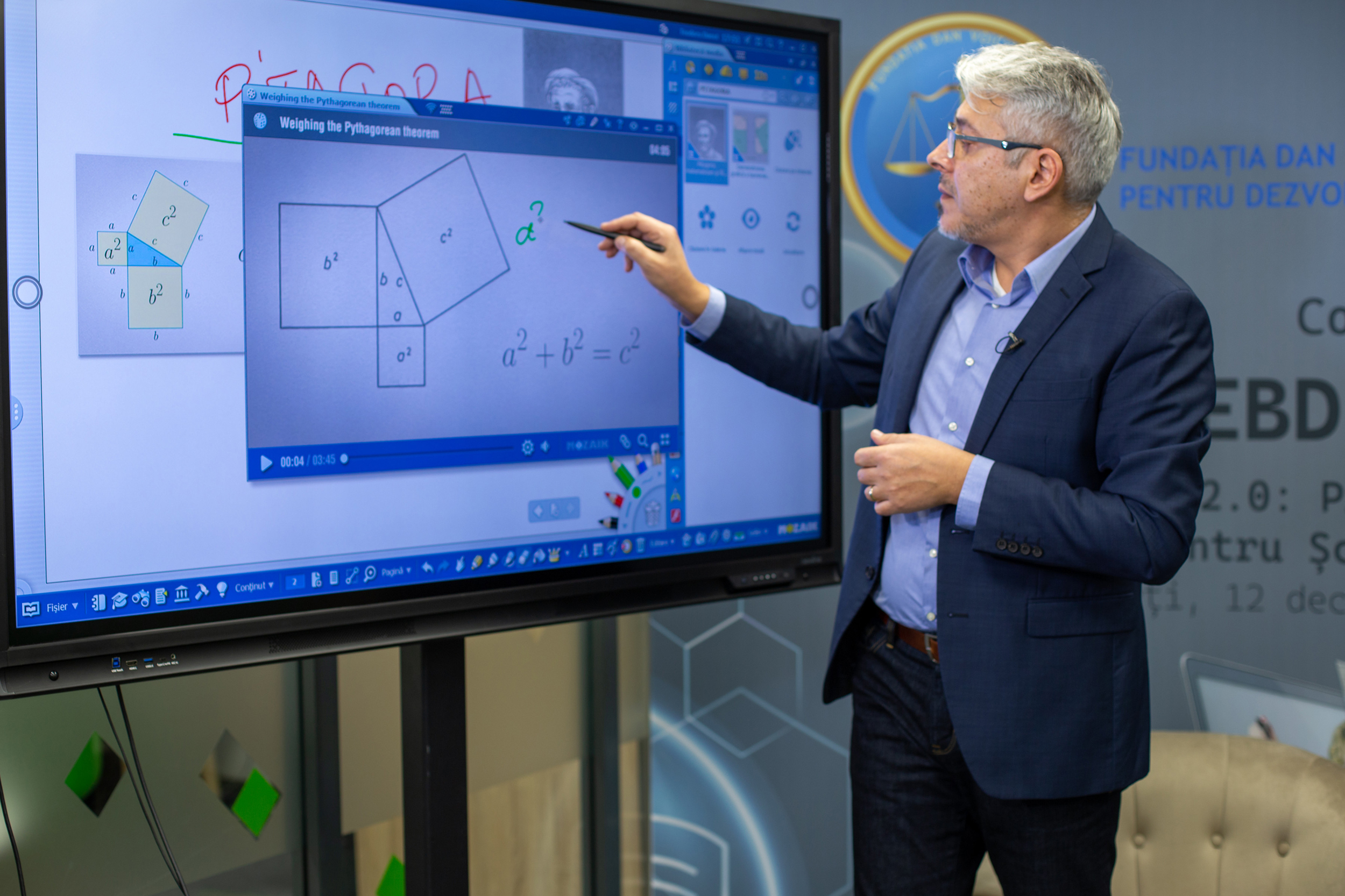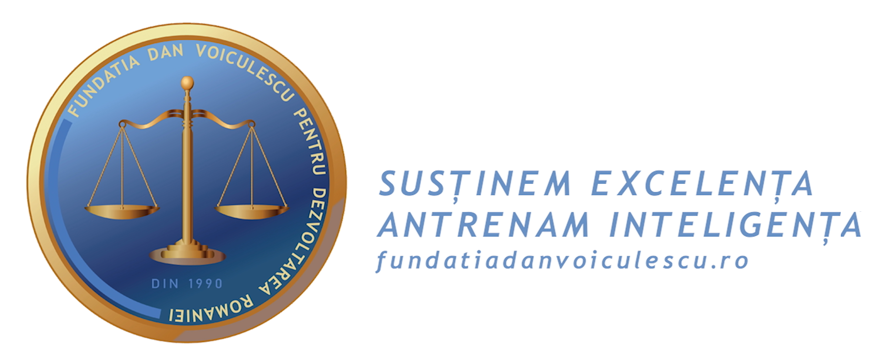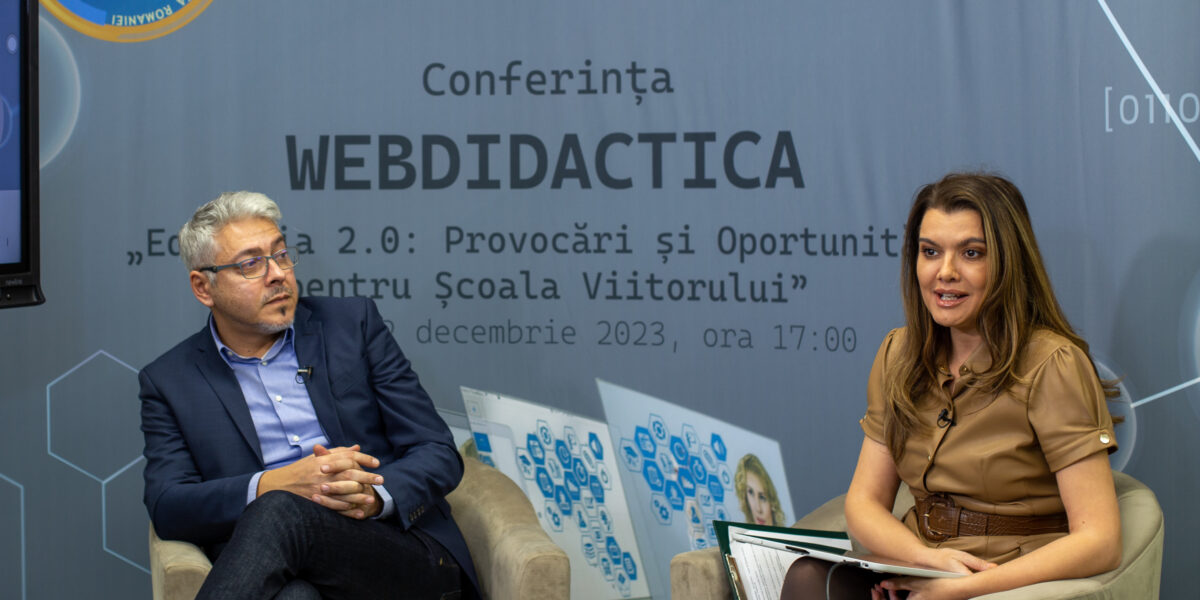Dan Voiculescu Foundation for the Development of Romania organised the last conference of 2023. The WEBDIDACTICA event "Education 2.0: Challenges and Opportunities for the School of the Future" gathered top speakers from the field of education and technology. The panel discussion focused on the evolution of learning in the digital age, with a focus on the adaptability and integration of technology in education and how it can transform the interaction between teachers and students.
Marian Staș, renowned education expert and President of the Third Millennium Leaders Club, stressed the need for a flexible curriculum, focused on student choice. He presented a pilot project implemented in several schools in Romania, which encourages students to shape their own educational path.
"The model of student choice in the school offer teaches children to choose and decide. This involves teachers and parents being with the children to teach them how to choose for the next semester and make the best choice. If the choice wasn't the happiest, they'll make a better choice next term. For example, in high school, students have 64 course choices over four years, with the option to choose twice per semester. Of these 64 options, 32 are chosen from the common core and 32 according to the student's preferences. This gives students 32 opportunities, not just to learn the theory by heart, but to apply the knowledge and develop the ability to decide for themselves. They will learn from what they are interested in and enjoy or what they are curious to develop further" explained Marian St aș.
Dănuț Eremenco, an expert in technology for education, highlighted the need to adapt technology to educational requirements and not the other way around. The expert says technology must support active learning and make education an interactive and engaging experience for both teachers and students.

"Technology must be inclusive. We are adapting technology to people in education, not the other way around. We are not trying to train teachers in a particular direction for a particular technology. Because there are both students and teachers with different backgrounds, either level or specific. Technology must allow knowledge, information to be transmitted easily, effortlessly, as naturally as possible, as we do with a whiteboard in the classroom. The lecturer, regardless of the level of education, must focus on the message he is conveying, on the content presented, not on the technology he is using to convey this message", stressed Dănuț Eremenco.
Gabriela Maalouf, psychologist and education expert, stressed the importance of adaptability in the context of modern education. She highlighted how technology streamlines learning and can bring significant benefits to students, facilitating a dynamic relationship between teachers and students.
"Kids already familiar with technology, are playing lots of video games, are on social media, and expect the same level of engagement in the area of technology use during the learning process. It would be great if we as teachers, we as parents, could develop an ethic around the use of technology so that our children see it not as a distraction, but as a tool. It's important to be flexible, to know our students, to speak to their taste, to use the right resources for their learning style," said Gabriela Maalou f.
The WEBDIDACTICA conference series, initiated by the Dan Voiculescu Foundation for the Development of Romania, brings together experts, educators and opinion leaders in the field of educational excellence. They provide a valuable platform for teachers and parents, promoting the exchange of new ideas and familiarity with the latest trends in education.
WEBDIDACTICA "Education 2.0: Challenges and Opportunities for the School of the Future was held in the framework of the national competition project "School of the Future".

